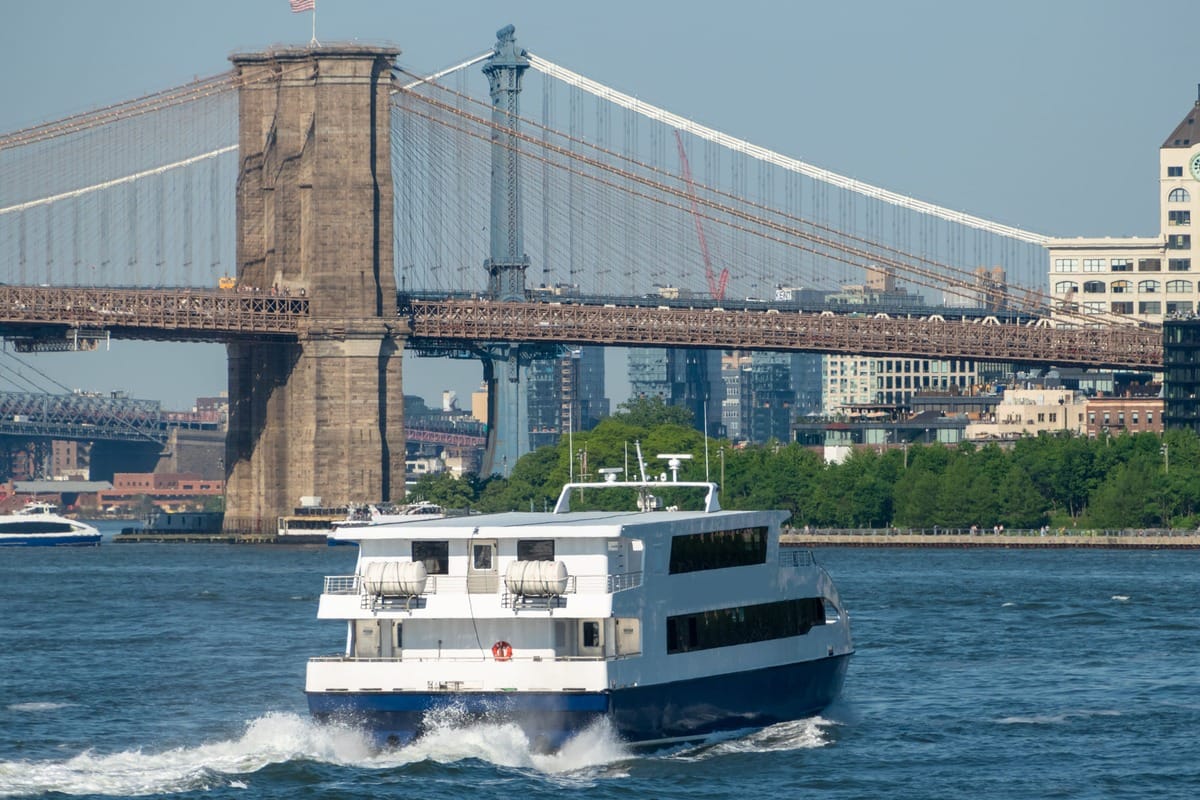The Port of Los Angeles, in partnership with compatriot passenger ferry service Catalina Express and boat tour agency Harbor Breeze Cruises, is set to commence emission-reduction technology demonstration projects for specialized
The Port of Los Angeles, in partnership with compatriot passenger ferry service Catalina Express and boat tour agency Harbor Breeze Cruises, is set to commence emission-reduction technology demonstration projects for specialized harbor craft through a $31 million grant awarded by the California Air Resources Board (CARB).

According to the port, the bedrock of the project will be a detailed evaluation of the feasibility and commercial status of two different emission-reduction technologies, a ‘rigorous’ examination of next-generation, less-pollution harbor craft, as well as identifying infrastructure gaps for zero-emission harbor craft and the potential for marinizing the diesel particulate filter.
As informed, this endeavor is also set to explore workforce development needs related to training harbor-craft workers in new engine technologies and ‘advanced’ battery-electric solutions for tugs, ferries and pilot boats operating in the San Pedro Bay.
It is understood that grant partners Catalina Express and Harbor Breeze Cruises will each contribute a $15 million match toward their respective demonstration programs. At the same time, the Los Angeles Harbor Commission has greenlit an additional $650,000 of the Los Angeles Port’s funds to help the project’s study.
The Port of Long Beach is also set to contribute about $340,000 to support the Los Angeles’ technology evaluation in coordination with harbor craft operators, regulators, engine manufacturers, technology developers, and the US Coast Guard.
“To achieve our goal of becoming a zero-emission port, we need to incorporate a range of emission-reduction technologies throughout our port complex, as well as promote their commercialization. We’re grateful to the California Air Resources Board, Catalina Express and Harbor Breeze Cruises for helping support this industry-leading initiative to test new and promising harbor craft technologies,” Port of Los Angeles Executive Director Gene Seroka highlighted.
As explained, the Los Angeles Marine Emission Reduction (LA MER) project is part of California State Investments, a statewide initiative that invests billions of cap-and-trade dollars toward slashing greenhouse gas (GHG) emissions, bolstering the economy and improving public health and the environment—especially in disadvantaged communities.
LA MER will reportedly encompass the design, construction and launch of a passenger ferry with Tier 4 engines and potentially a CARB-verified, US Coast Guard-approved diesel particulate filter. Operated by Catalina Express, the new unit is set to use renewable diesel, replacing three smaller ferries using Tier 2 and Tier 3 engines.
“For over 43 years, Catalina Express has been environmentally conscious and has been able to meet or exceed federal and state regulations to help reduce emissions. In addition to the re-engine projects, the company has worked with their fuel provider to migrate a majority of the Catalina Express vessels to renewable diesel, which is derived from a base of soybean oil and other vegetable stocks,”Greg Bombard, President and CEO of Catalina Express, elaborated.
What is more, together with Harbor Breeze Cruises, the LA MER project will also comprise the design, construction and deployment of two zero-emission capable excursion boats. The ships are anticipated to exceed the regulatory definition of a Zero-Emission Advanced Technology (ZEAT) vessel and could potentially operate a minimum of 30% of the time in zero-emission mode, with some trips operating as much as 100%, depending on route length and other factors, as per the Port of Los Angeles.
“Catalina Express is grateful to CARB for this grant and the partnership with the Port of Los Angeles. Their support has allowed us to move forward on the construction of this new vessel to further the mission of environmental advancement and continue to provide a valuable and affordable ferry service to Catalina Island for Island residents, visitors and local communities,” Bombard added.
The Port of Los Angeles is considered to be North America’s largest gateway and has repeatedly topped the charts of container handling ports in the country, having handled a total of a total of 8.6 million units in 2023 only.
Over the years, the port has endeavored to accelerate its climate neutrality efforts via an array of ‘diverse’ initiatives, both with domestic partners and partners abroad, such as the Port Authority of Singapore (MPA Singapore), the Swedish Port of Gothenburg, and Japan’s Port of Yokohama and Port of Tokyo, with which Los Angeles entered into a memorandum of understanding (MoU) in March 2023 to establish green shipping corridors.
More recently, the Golden State’s “biggest” gateway secured ‘landmark’ funding from the US Environmental Protection Agency (EPA) to advance its zero-emission targets. Specifically, the port received $412 million from the EPA’s Clean Ports Program, for which it applied back in May 2024.
As disclosed, the funding—matched with an additional $236 million from the port itself—carries the potential to ‘substantially’ cut down on harmful emissions, including but not limited to minimizing annual emissions of nitrogen oxides (NOx) by what was calculated to be as much as 55 tons.
Related Article
READ MORE
- Int’l port stakeholders ink declaration to decarbonize shipping
- California grants record sum for ports’ zero-emission future
- Los Angeles and Nagoya ports to establish green shipping corridor
- Carbon removal system to be installed at Port of Los Angeles
- World’s first transpacific green shipping corridor in the making
Content Original Link:
" target="_blank">


























































